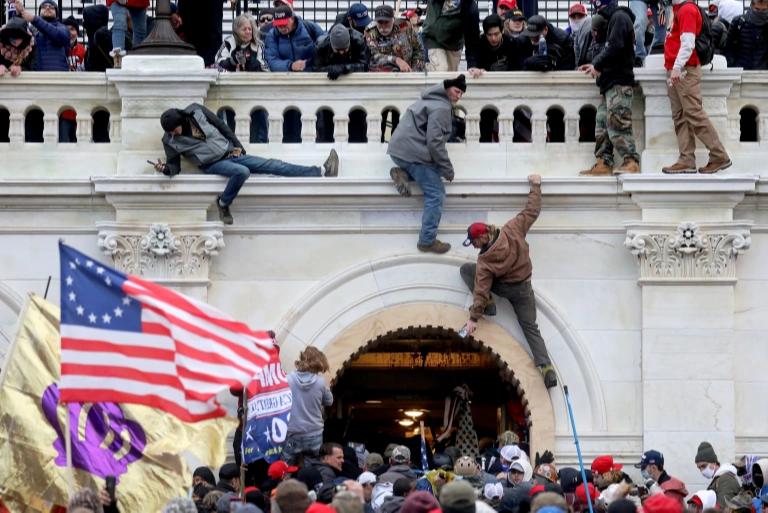
Former President Donald Trump, who was impeached for 'incitement of insurrection' in relation to the Capitol riot, has argued against release of the documents [File: Leah Millis/Reuters]
Washington, November 11 (RHC)-- A U.S. appeals court has temporarily blocked lawmakers investigating the deadly January 6th insurrection from accessing records from Donald Trump’s White House, as the court considers an emergency request from the former president to block their release.
The administrative stay, issued on Thursday by the U.S. Court of Appeals for the District of Columbia Circuit, is intended to give the court time to consider Trump’s arguments against the release of the documents.
The National Archives had been scheduled to give Congress hundreds of pages of documents on Friday, but the appeals court now has set the next arguments in the case for November 30.
The U.S. House of Representatives committee investigating the riot at the United States Capitol is seeking Trump’s call logs, draft speeches and other documents related to January 6th. The panel has pushed for the records as part of its effort to understand the events leading up to the attack, in which a mob of Trump supporters ransacked the building and forced into hiding lawmakers who were certifying Joe Biden’s presidential election victory.
Trump had repeated unsubstantiated claims of widespread voter fraud for weeks after the November 4th election, and he was later impeached in the House for “incitement of insurrection” after the riot.
Last month, the Biden administration rejected Trump’s attempt to invoke “executive privilege” to block the documents’ release to the House panel, saying such a move was “not warranted.” Trump then went to court, arguing that as a former president he still had the right to exert privilege over the records and that releasing them would damage the presidency in the future.
U.S. District Judge Tanya Chutkan on Tuesday rejected those arguments, noting in part that “Presidents are not kings, and Plaintiff is not President.” She again denied an emergency motion by Trump on Wednesday.
In their filing to the appeals court, Trump’s lawyers wrote that without a stay, the former president would “suffer irreparable harm through the effective denial of a constitutional and statutory right to be fully heard on a serious disagreement between the former and incumbent President.”
The November 30 arguments will take place before three judges nominated by Democratic presidents: Patricia Millett and Robert Wilkins, nominated by former President Barack Obama, and Ketanji Brown Jackson, an appointee of Biden.
So far, the House panel has interviewed more than 150 people across government, social media and law enforcement as part of its investigation. It also has subpoenaed more than two dozen Trump administration officials and allies of the ex-president, including Mark Meadows, Trump’s former chief of staff, and Steve Bannon, a former adviser.
On Thursday, the White House notified a lawyer for Meadows that Biden would waive any executive privilege that would prevent him from cooperating with the committee. Meadows’s lawyer, George Terwilliger, issued a statement in response, saying his client “remains under the instructions of former President Trump to respect longstanding principles of executive privilege.” “It now appears the courts will have to resolve this conflict,” Terwilliger said.

